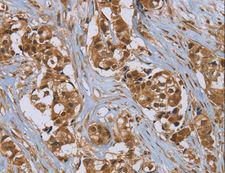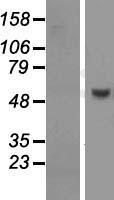order histories, retained contact details for faster checkout, review submissions, and special promotions.
Forgot password?
order histories, retained contact details for faster checkout, review submissions, and special promotions.
Locations
Orders Processing,
Shipping & Receiving,
Warehouse
2 Shaker Rd Suites
B001/B101
Shirley, MA 01464
Production Lab
Floor 6, Suite 620
20700 44th Avenue W
Lynnwood, WA 98036
Telephone Numbers
Tel: +1 (206) 374-1102
Fax: +1 (206) 577-4565
Contact Us
Additional Contact Details
order histories, retained contact details for faster checkout, review submissions, and special promotions.
Forgot password?
order histories, retained contact details for faster checkout, review submissions, and special promotions.
PUS10
pseudouridylate synthase 10
Pseudouridylate synthases catalyze pseudouridination of structural RNAs, including transfer, ribosomal, and splicing RNAs. PUS10 catalyzes the formation of the universal psi55 in the GC loop of transfer RNAs (Probable). Modulator of TRAIL-induced cell death via activation of procaspase 8 and BID cleavage. Required for the progression of the apoptotic signal through intrinsic mitochondrial cell death.
| Gene Name: | pseudouridylate synthase 10 |
| Synonyms: | PUS10, CCDC139, DOBI, Pseudouridine synthase 10, Pseudouridylate synthase 10, TRNA pseudouridylate synthase, TRNA-uridine isomerase, TRNA pseudouridine 55 synthase, Psi55 synthase |
| Target Sequences: | AA213749 NP_653310.2 Q3MIT2 |





If you do not find the reagent or information you require, please contact Customer.Support@LSBio.com to inquire about additional products in development.









